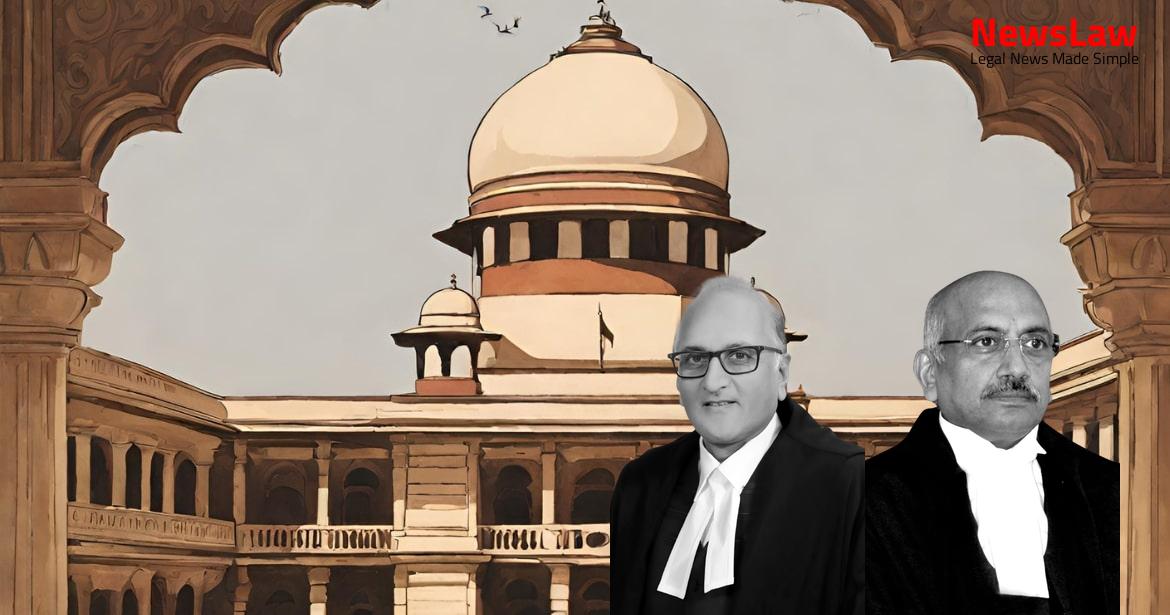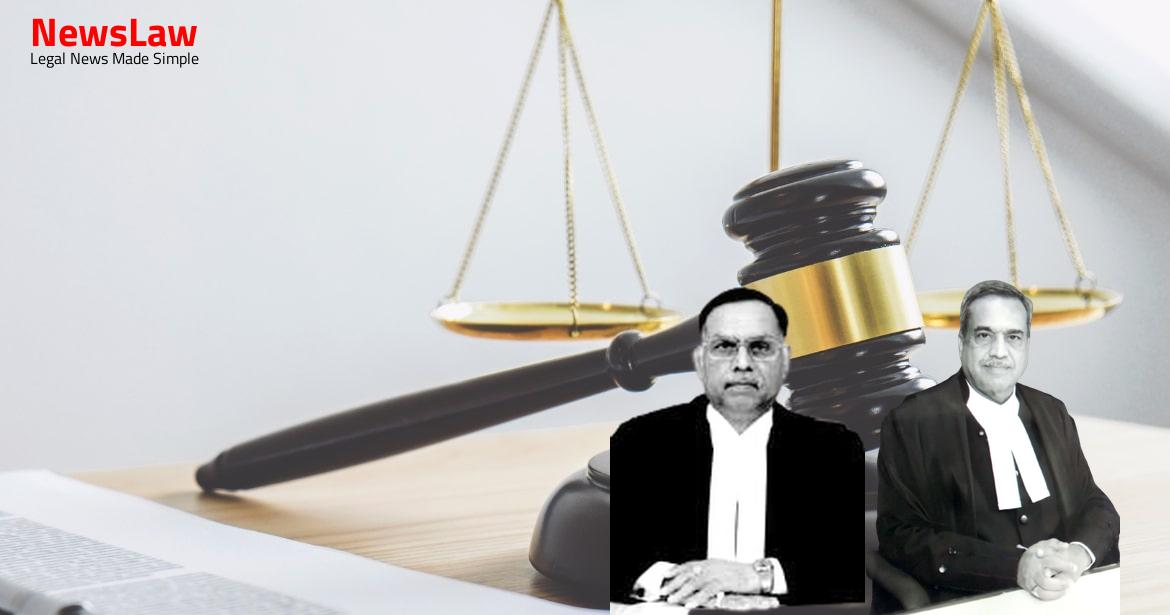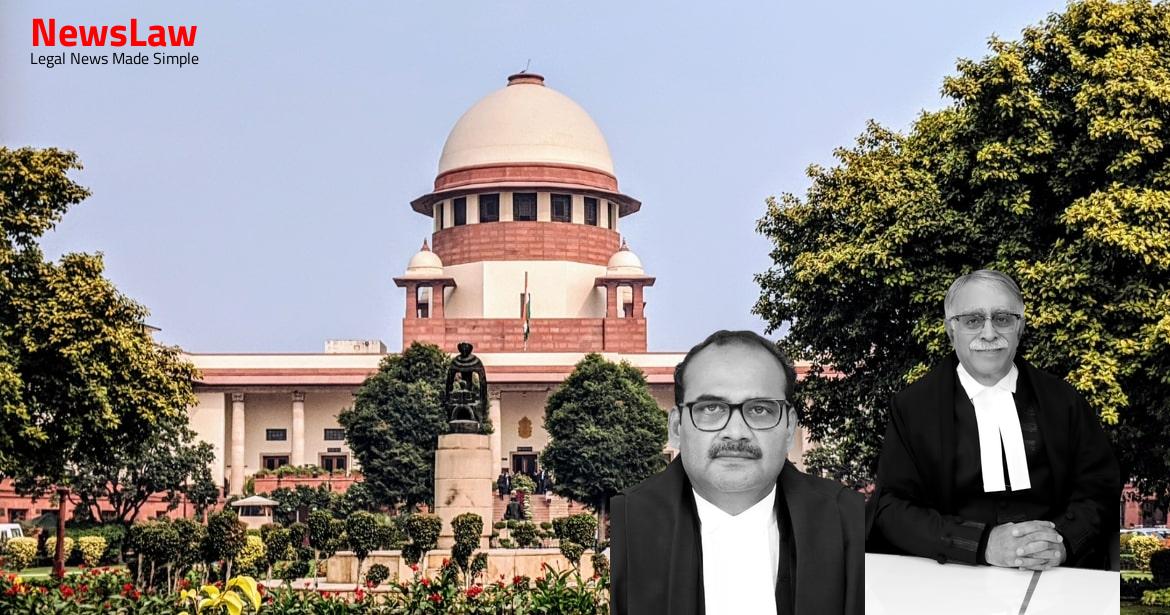Explore a detailed examination of disciplinary procedures in cooperative society employment based on a recent court judgment. This analysis focuses on the legal aspects of the case, particularly in terms of adherence to due process and the necessity of obtaining proper approvals. Gain valuable insights into the complexities of disciplinary actions in the context of cooperative society regulations and the role of competent authorities.
Facts
- Managing Director/ Chairman passed order of punishment on 26.10.2018 without prior approval under Regulation 87 from competent authority.
- High Court held order of punishment was passed without following due procedure of law, prior to employee’s retirement.
- Judgment in Chandra Pal Singh v. State of U.P. & Ors. highlighted the necessity of prior approval of Board as per Regulation 87 of Service Regulations.
- Punishment order and approval granted by the same person, leading to an issue of inappropriate approval by an incompetent authority.
- Inquiry reports dated 9.5.2014 and 15.10.2014 were referenced in the intra-court appeal showing employee had not been given any disagreement note and was exonerated.
- High Court upheld the order of punishment dated 26.10.2018 reverting the employee to minimum pay scale and considering suspension period as service period.
- Uttar Pradesh Co-operative Institutional Service Board established in 1972 for recruitment, training, and disciplinary control of cooperative society employees.
- Regulations published in 1976 for cooperative society employees.
- Allegations of weight manipulation led to financial losses for the Federation.
- Inquiry report in 2018 partially proved charges against the employee.
- Jurisdiction of the Service Board ceased in 1979 concerning the Pradeshik Co-operative Dairy Federation.
- Selection committee constituted for recruitment of Category I and II employees.
- Rules for the Administrative Committee of the Dairy Federation published in 1984.
- Employee suspended with subsistence and dearness allowance only.
- Punishment order approved by the Commissioner (Dairy Milk) Lucknow.
- Opportunity of personal hearing provided to the employee.
- Employee appointed as Manager Grade-III after training period.
- Charge sheet served in 2015 regarding creation of an additional hidden chamber in milk tankers.
Also Read: Critical Analysis of Circumstantial Evidence in Arson Case
Analysis
- The Resolution dated 20.9.1984 does not determine the Appointing or Disciplinary Authority as it is covered by the Dairy Service Rules.
- Regulation 106 of the Service Regulations empowers the State Government or the Registrar to pass orders related to termination, dismissal, or removal.
- Regulation 87 of the Service Regulations mandates that no punishment order can be passed without prior concurrence of the Board.
- The Chairman of the Administrative Committee, being the Registrar as well, is not subject to Regulation 87 in disciplinary matters.
- The disciplinary proceedings against the employee were initiated on 21.4.2015.
- The Chairman seeking approval from the Commissioner (Dairy Milk), discharging functions as the Registrar, is a valid procedure.
- The Administrative Committee passed an office order on 8.8.2016 making approval from Dairy Milk Commissioner/Registrar mandatory prior to imposing penalties.
- The Chairman of the Administrative Committee is the Appointing and Disciplinary Authority until Regulations are framed.
- The Division Bench in Chandra Pal Singh did not consider Rule 15 of the Dairy Service Rules.
- Section 122-A empowers the Government to provide for centralization of services.
- The Chairman of the Administrative Committee, in terms of the Dairy Service Rules, is the Appointing and Disciplinary Authority.
- The Resolution dated 20.09.1984 and subsequent office orders cannot override the statutory Rule 15 governing disciplinary procedures.
- The approval from the Registrar is a mandatory requirement for imposing penalties.
- The Inquiry Report found charges 1 and 3 to be proved against the employee.
- The punishment imposed was reversion, not termination, dismissal, or removal.
- The Chairman of the Committee does not require prior concurrence of any authority as per Rule 15.
- The employee was given an opportunity for a personal hearing.
- The order of punishment without approval of the Board was deemed illegal in terms of Regulation 87 of the Service Regulations.
- Regulation 84 of the Service Regulations outlines penalties such as reduction in rank, removal from service, or dismissal from service.
- Regulation 87 of the Service Regulations specifies that these penalties can only be imposed with the prior approval of the Board.
- The Registrar has authority over all Cooperative Milk Societies as per Regulation 13.
- Exercise of power by the Chairman of the Committee in this case is justified.
- High Court orders were not based on correct understanding of law and facts.
- No error found in the punishment order passed by the Administrative Committee.
Also Read: Analysis of Commencement Date in Gratuity Act Amendment Case
Decision
- The appeal is allowed.
- Orders are set aside.
- The writ petition is dismissed.
Also Read: Interpretation of Will and Hindu Succession Act: Legal Analysis
Case Title: CHAIRMAN ADMINISTRATIVE COMMITTEE UP Vs. JAGPAL SINGH (2021 INSC 202)
Case Number: C.A. No.-000049-000049 / 2021



